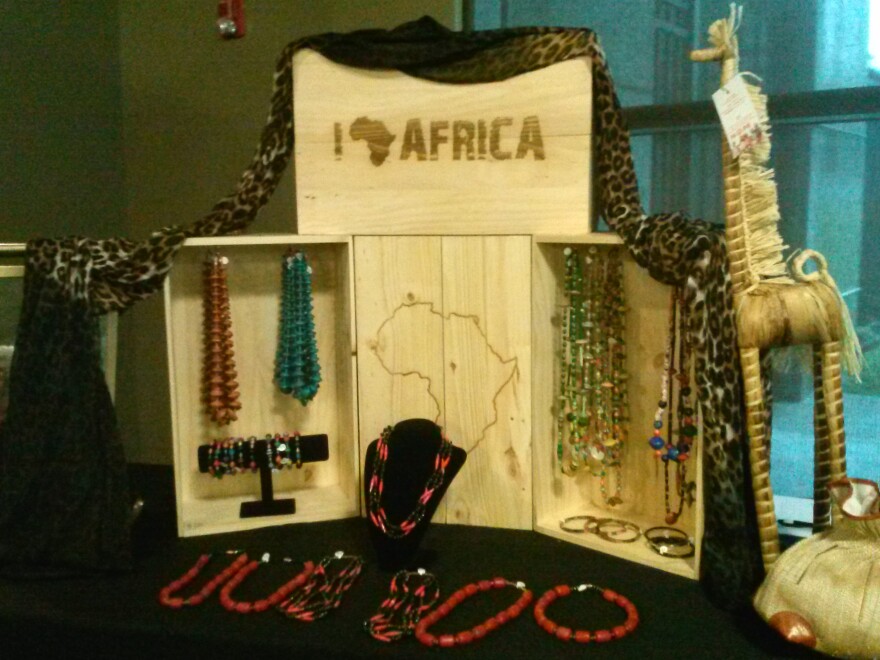The sounds of a drum led people to the Museum of Science and Industry’s welcome center. Straw huts and booths held up with wooden poles were covered in multicolored pottery, beaded necklaces, hand-woven baskets and wooden cooking utensils. Though you couldn't smell it, cow dung was a key ingredient in some of the paintings propped against the wall.
“I Love Africa,” an annual fair trade marketplace, featured unique artwork and crafts created by more than 250 artisans across eastern Africa. Africa TrAID is part of an economic development program created by Mike and Debbie Gilbert under One City Ministries.

Jacob Smith, an intern with the ministries who has visited Uganda, says that he has seen the impact the program has made on the people there.
“All this art that is here today, is really hope for the artists and their families that for once in their lives, they’re able to provide for their families food, clothes, education,” Smith said. “And through that their educated and they get to really experience more modern day technologies as far as how to advance because obviously Uganda is just poverty-stricken."
While living in Uganda during a mission, the Gilberts were approached by a Ugandan woman attempting to sell a hand-woven basket to feed her family. That one purchase led to the Africa TrAID program. Now, the Gilberts live in Uganda year-round, coming back to the states for the marketplace, bringing tons of handmade items with them.
“People do want to work, they do want to make a living,” Debbie Gilbert said. “They just need a little bit of assistance in getting on their feet. And we wanted people to understand how difficult it is to make some things there and then how hard it is to live there. So, it was really the stories of the people that we were trying to bring here and then that just turned into, we went from a couple of artists to 50 to 100 to 250 this year.”

Jasmine Jones, a teacher at Learning Gate Community School in Lutz, decided to stop by and shop around.
“Well, Christmas presents of course, because it’s right around the corner,” she said. “And then my dad’s birthday is this week. So I was thinking that instead of going to, like, the mall, I would come here and see if I could find something for him from here.”
Jones walked out of the marketplace with an engraved elephant, a wooden board game and marbles, a pair of pants, a keychain, a metal-constructed mini-motorcycle and a ring all for $130.
For Jade Skinner, she’s seen some of the items at her workplace. However, this was her first time at the marketplace.
“There’s so much stuff here,” Skinner said. “I’m very fond of the hand-woven baskets. I think they’re absolutely gorgeous and they’re multipurpose and they make great gifts and they look good hanging out in the house with some fruit in them."
For some Ugandans, the money made through the marketplace is the first income they've ever had, according to the Gilberts. In addition to paying the artisans for their works, the money from the Africa TrAID program also funds projects in Uganda like AIDS awareness and prevention, artisan training, health and literacy.
The Africa TrAID marketplace only happens once a year. However, items can be bought at any time at onecityministries.org.







